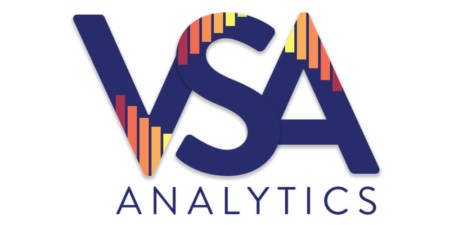Data is absolutely everywhere, especially in colleges and universities. Someone has to collect, manage, analyze, organize and interpret the quintillion bytes of data we generate every day, and in higher education that someone is an institutional researcher.
Below, we outline what goes on inside an institutional research department, the different roles available and how to get started in the field.
What Does an Institutional Research Department Do?
What it’s Like to Work in Institutional Research
Types of Institutional Research Roles
How to Get a Job in Institutional Research
What Does an Institutional Research Department Do?
Higher education relies on information like enrollment trends and course success rates to improve offerings and student success rates. An institutional research (IR) department provides the means to help stakeholders and leaders make data-driven decisions to benefit their community. Essentially, institutional researchers are the superheroes of higher education.
From admissions to liberal arts, institutional researchers are some of the only employees in higher education who communicate with nearly every department on campus. Specifically, the Association for Institutional Research (AIR) defines the following as their primary duties:
- Identify information needs: By reviewing data, research and policies, IR departments anticipate questions and help stakeholders refine existing research questions.
- Collect, analyze, interpret and report information: Using data collection and applied research methods, IR professionals provide information that can be used for decision making.
- Plan and evaluate: This includes operational, budgetary and strategic planning for program reviews or accreditation requirements.
- Serve as stewards of data and information: IR is responsible for making sure that data is compliant, accessible and understandable across the entire institution.
- Educate information producers, users and consumers: This includes training and coaching relevant users on how to analyze and use data to inform decision making.
Daily Responsibilities
Working in institutional research will typically have consistency on a day-to-day basis, due to the mandated reports and various due dates and deadlines throughout the year. You’ll be using higher education data analytics platforms, processing course evaluations and working with assessment software to complete internal, state and federal reporting requirements.
However, institutional research departments also need to be prepared for last-minute or urgent requests from stakeholders. For an example, there could be an instance where the president of the college needs to make a public, data-backed statement on a recent news article. Since the institutional research department is the primary source of data, this would require them to act quickly and efficiently.
What it’s Like to Work in Institutional Research
The higher education industry is known for moving a bit slower than others, which is sometimes reflected in the institutional research department. The environment tends to be quiet and focused, but at the same time there’s a lot of work to be done.
“Most people who work in higher education only experience what their own department does, but institutional research sees it all,” said Dr. Denise Nadasen, Director of Research and Data Policy for the Association of Public and Land-grant Universities (APLU).
Dr. Nadasen has worked in public higher education for more than 20 years. One of her first positions was as a Coordinator for Institutional Research for the University System of Maryland. She then went on to become the Director of Institutional Research at the University of Maryland, University College and later the Associate Vice President for Institutional Research/Accountability.
Her responsibilities have focused on program reviews, accreditation, accountability, enrollment projections, data management and a long list of other institutional priorities.
“You’re involved in so many different aspects of what the institution needs to operate,” she said. “It’s a great way to get to know the entire school.”
At the APLU, Dr. Nadasen is the staff liaison for the Commission on Information, Measurement and Analysis (CIMA). She collaborates with campus constituents, analyzes strategies to enhance public research and designs accurate reporting metrics for student success and institutional performance.
Types of Institutional Research Roles
The institutional research (or institutional effectiveness) department at every college and university is structured differently, so there isn’t exactly a general list of job titles. However, below are some common positions and their requirements.
Bachelor’s degree and 2-4 years of experience:
- Program Analyst
- Business Intelligence Analyst
- Assessments & Evaluation Coordinator
- Student Success Reporting Specialist
- Institutional Research Analyst
- Planning & Assessment Coordinator
Master’s or doctorate degrees and several years of experience:
- Senior Institutional Research & Planning Analyst
- District Director of Research & Data Science
- Assistant Director of Institutional Research
- Associate Vice President of Institutional Effectiveness
Depending on the size of the school, an institutional research department could have between 2 to 20 people. Recently, there has been an influx of institutional researchers who work on a consulting basis, so some of the people you interact with may not necessarily be full-time, permanent employees.
How to Get a Job in Institutional Research
Education
For entry-level positions, you’ll need at least a bachelor’s degree. The higher the seniority level, the higher the degree you’ll need.
Entry-level assessment coordinators will typically need a bachelor’s degree, senior data analysts will need master’s degrees and vice presidents will need doctorate degrees.
But what exactly should you study? Here are some of the most common programs for this career path:
- Data analytics or data science
- Business analytics
- Statistics
- Soft sciences (psychology, sociology, physical science)
- Economics
- Political science
- Computer science
- Or a related quantitative research field
To put this all into perspective, here’s a look at Dr. Nadasen’s educational background:
- Doctorate Degree in Management
- Master’s Degree in Measurement, Statistics and Evaluation
- Bachelor’s Degree in Computer and Information Science
But remember: Dr. Nadasen started as a Coordinator for Institutional Research, and now she is a Director for the APLU!
Experience
As with every other industry, the more experience you have, the better qualified you’ll be.
One thing to keep in mind is that communication is a big part of working in institutional research. Some people may find it easy to focus on the technical aspect, but communicating analytical work to people outside of the institutional research department can be challenging.
Ultimately, you’ll need a healthy balance of technical and communication expertise to be successful in institutional research.
How to Find a Job
There are a slew of online job boards where you can browse available careers. Even if you’re still in school, looking at the qualifications and responsibilities for available jobs can help you get an idea of where you may want to work in the future.
Here are a few of our favorite resources:
Interview Tips
Interviewing for a position in institutional research is a standard process that may begin with a phone interview, followed by several in-person interviews.
What can help you differentiate yourself from other candidates is to come to your interview with specific examples of how you’ve used data analysis in the past. If you can demonstrate your understanding of the beneficial ways to use data for decision making and strategic planning, you’ll be sure to impress your interviewers!
Conferences & Events
A great way to stay current on all things related to higher education data analytics is to attend conferences and networking events. Here, you’ll be able to mix and mingle with likeminded professionals while getting a behind-the-scenes look at what’s going on in your field.
Most conferences are held annually by regional institutional research associations. Below are a few examples:
- California Association for Institutional Research
- Southern Association for Institutional Research
- North East Association for Institutional Research
- Association of Institutional Research of the Upper Midwest
- Texas Association for Institutional Research
- Pacific Northwest Association for Institutional Research & Planning
As you can see, institutional research is a major part of every college and university. IR departments support every facet of an institution, and their experience and insights are crucial for the future of higher education. In fact, Precision Campus was created by a former institutional researcher!
If you’re interested in seeing how a data analytics program works, check out our test environment. You can use example data to experience the look and feel of a real data platform.


